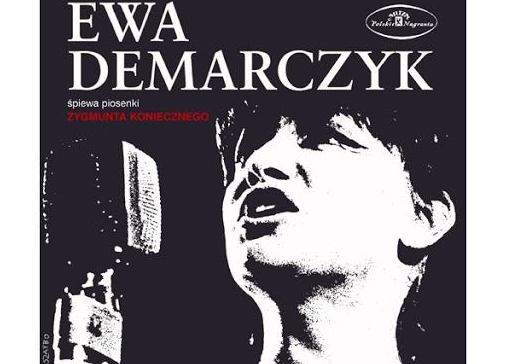

Our parents and grandparents did not speak of the war, of the Holocaust, of the destruction and humiliating defeat. It meant living with silence, uneasy and heavy and ubiquitous. It meant walking in the streets lined with half burnt houses, exposing what had once been apartments of those who had been killed or fled.

An English translation is available.įor me, growing up in Poland meant growing up on the ruins of World War II. A whirling carousel with wooden madonnas at a village fair a Gypsy woman on a messed-up tavern bed asking for anything, a shawl, a kerchief Rebeka in a far-away shtetel which no longer exists mourning her unrequited love a hunchback who, on his crooked shoulders, drags the weight of his broken life:Įwa Demarczyk sings Goethe’s poem, Nähe des Geliebten (Near His Beloved) in German. Song after song conjures up images that stay with me until now. She aims at the poet’s vision, its very essence. She is not always faithful to one specific poem. Her voice goes from whisper to scream, from recitation to most tender melody. She enunciates the words with absolute precision, sometimes faster than my thoughts can follow. She sings her most famous songs, music composed to the lyrics of poets popular in Poland before and after the war: the poetry of Tuwim, Leśmian, Pawlikowska-Jasnorzewska, Baczyński and Białoszewski. She bends towards the microphone and waits for the music to begin. Her black hair is shoulder long her eyes contoured with kohl. A small figure in a simple black dress emerges out of darkness. A dark stage, a black piano, a single microphone lit by a beam of light. I went to Ewa Demarczyk’s concert in person sometime in the early 70s, and the evening is still vivid in my memory. “Karuzela z Madonnami” (Carousel with Madonnas). Lyrics: Miron Białoszewski, Music: Zygmunt Konieczny. Here is one of her early songs that she sang at the 1963 National Festival of Polish Song in Opole. With her motionless face, her ascetic gestures, and her piercing stare she seemed all-seeing, otherworldly a temple priestess, conjuring up her ghostly visions. For Demarczyk was also a mesmerizing actress. She sang with absolute precision and striking power, though her powerful, commanding voice was not her only talent. Two years after her cabaret debut, Ewa Demarczyk and her then collaborator, composer Zygmunt Konieczny performed in filled-up theatres and sold-out concert halls.ĭemarczyk sang poetry, the poems we knew by heart and the poems we would search for when the song ended. Then came prestigious awards, in Opole, in Sopot, followed by concerts abroad. Soon the songs she sang there-each an intense musical and poetic masterpiece-found their way to music festivals and radio programs. We began hearing of her in 1962, when she joined the legendary Kraków cabaret, Piwnica pod Baranami, loved for its subversive mixture of laughter and magic. Not in the 60s and 70s. For us there was no one like her. We called her Black Angel, Madonna, a legend of her time.


 0 kommentar(er)
0 kommentar(er)
